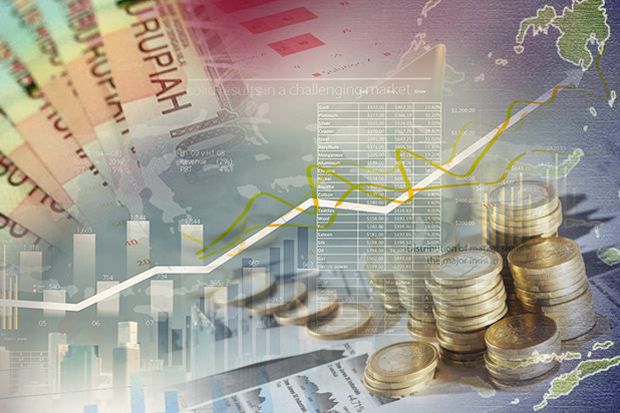The Government’s Effective Strategy to Stabilize the Economy Amid the Global Slowdown
The projection for global economic growth in 2024 by the International Monetary Fund (IMF) is estimated at only 3.1 percent, while the World Bank predicts that the global economy will only grow 2.4 percent, lower than the performance of the global economy in 2023. The low global economic growth is caused by several factors, including geopolitical instability in the Middle East and Europe and the extreme weather currently being faced by various countries. So, it is estimated that global economic conditions in 2024 will still not improve after Covid-19.
Minister of Finance (Menkeu), Sri Mulyani Indrawati, said that political conflict and instability in several regions could create economic uncertainty and hinder investment. Trade conflicts between countries can also affect global economic growth.
Meanwhile, the Indonesian economy remains resilient, supported by strong domestic demand, consumption and investment amidst global economic growth which is predicted to remain in a weak position. The global economy in 2024 is estimated to still be in a weak position, where even though inflation has moderated or decreased, this has not necessarily reduced interest rates which have soared quite high in the last 18 months.
In the midst of the weakening global economy, he revealed that Indonesia recorded relatively good growth at 5.0 percent, seen from the G20 and ASEAN countries.
An important contributor in supporting the strength of the Indonesian economy is household consumption which is still maintained, growing at 4.82 percent from the expenditure side and the manufacturing sector growing 4.64 percent from the production side. Consumption activity which remains strong is supported by controlled inflation and the role of the APBN as a shock absorber in maintaining people’s purchasing power. Meanwhile, in 2024, the APBN will continue to be optimized to provide stimulus for the national economy to encourage accelerated economic transformation that is more inclusive, greener and sustainable.
A number of main policies taken by the Government in the short term are strengthening the domestic market and consumption of domestic products as well as maintaining people’s purchasing power through controlling inflation. In the medium to long term, the Government is committed to carrying out economic transformation to increase investment, encourage human resource productivity, and absorb labor through the implementation of the Job Creation Law.
In the financial sector, the Government is also carrying out financial reform with the issuance of the Financial Sector Development and Strengthening Law (UU P2SK) which is expected to be able to answer various financial sector problems. Apart from that, regulations will also be made regarding Export Proceeds Foreign Exchange (DHE) through the revision of Government Regulation Number 1 of 2019 with the expansion of mandatory DHE export commodities other than natural resources, namely downstream manufactured commodities.
The government is committed to building downstream industry to increase the selling value of commodities. In accordance with President Jokowi’s direction, exports of raw materials will continue to be reduced and industrial downstreaming will continue to be increased.
Coordinating Minister (Menko) for Economic Affairs, Airlangga Hartarto, said that sustainable policies are the key to future economic growth. However, the government is also aware of the risks of global economic turmoil, such as the Ukraine-Russia war, Hamas-Israel, and the weakening of the Chinese economy.
This results in fluctuations in commodity prices. Therefore, the government continues to make various efforts and anticipations, including providing economic stimulus including various fiscal policies, such as tax reductions for certain sectors, investment incentives, and greater government spending on infrastructure projects. The aim of this stimulus is to encourage economic activity and increase people’s purchasing power.
In addition, the Government is carrying out structural reforms to improve the investment climate and competitiveness of the Indonesian economy. Some efforts in this regard include simplifying regulations, accelerating business licensing, and reforming the energy, agricultural and employment sectors. These measures aim to improve economic efficiency and increase productivity.
The government is also focusing on strengthening real sectors, such as the manufacturing, agriculture and tourism sectors. In this case, the government provides support and incentives to these sectors to encourage growth and create new jobs. For example, strategic industrial development programs and revitalization of the agricultural sector.
The government also launched a social protection program aimed at helping people directly affected by the economic crisis. This program includes cash social assistance, price subsidies for basic commodities, and health protection for the poor. This step was taken to reduce the negative impact of the economic crisis on the more vulnerable layers of society.
All efforts to overcome the economic crisis in Indonesia are carried out continuously by involving various government, private and community institutions. However, it is important to remember that every economic crisis has its own complexities, and government responses to them may vary depending on the specific conditions and factors at hand.
However, facing this potential global crisis requires strong commitment from all elements of society. All stakeholders need to maintain the momentum of national economic growth with good cooperation between the public and private sectors. In this way, Indonesia will overcome a potential crisis and achieve strong and sustainable economic growth in the next few years.
